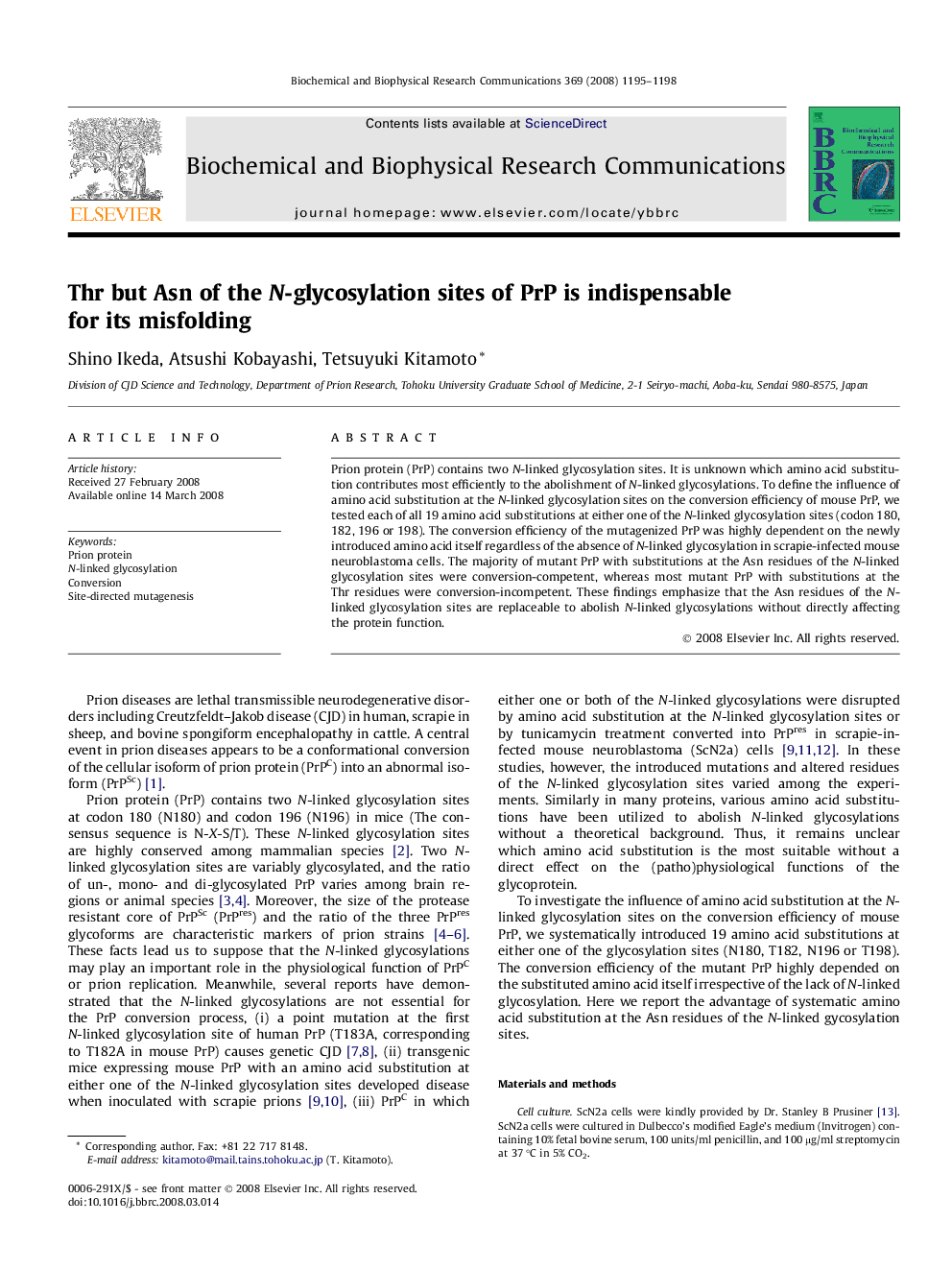| Article ID | Journal | Published Year | Pages | File Type |
|---|---|---|---|---|
| 1935739 | Biochemical and Biophysical Research Communications | 2008 | 4 Pages |
Abstract
Prion protein (PrP) contains two N-linked glycosylation sites. It is unknown which amino acid substitution contributes most efficiently to the abolishment of N-linked glycosylations. To define the influence of amino acid substitution at the N-linked glycosylation sites on the conversion efficiency of mouse PrP, we tested each of all 19 amino acid substitutions at either one of the N-linked glycosylation sites (codon 180, 182, 196 or 198). The conversion efficiency of the mutagenized PrP was highly dependent on the newly introduced amino acid itself regardless of the absence of N-linked glycosylation in scrapie-infected mouse neuroblastoma cells. The majority of mutant PrP with substitutions at the Asn residues of the N-linked glycosylation sites were conversion-competent, whereas most mutant PrP with substitutions at the Thr residues were conversion-incompetent. These findings emphasize that the Asn residues of the N-linked glycosylation sites are replaceable to abolish N-linked glycosylations without directly affecting the protein function.
Related Topics
Life Sciences
Biochemistry, Genetics and Molecular Biology
Biochemistry
Authors
Shino Ikeda, Atsushi Kobayashi, Tetsuyuki Kitamoto,
